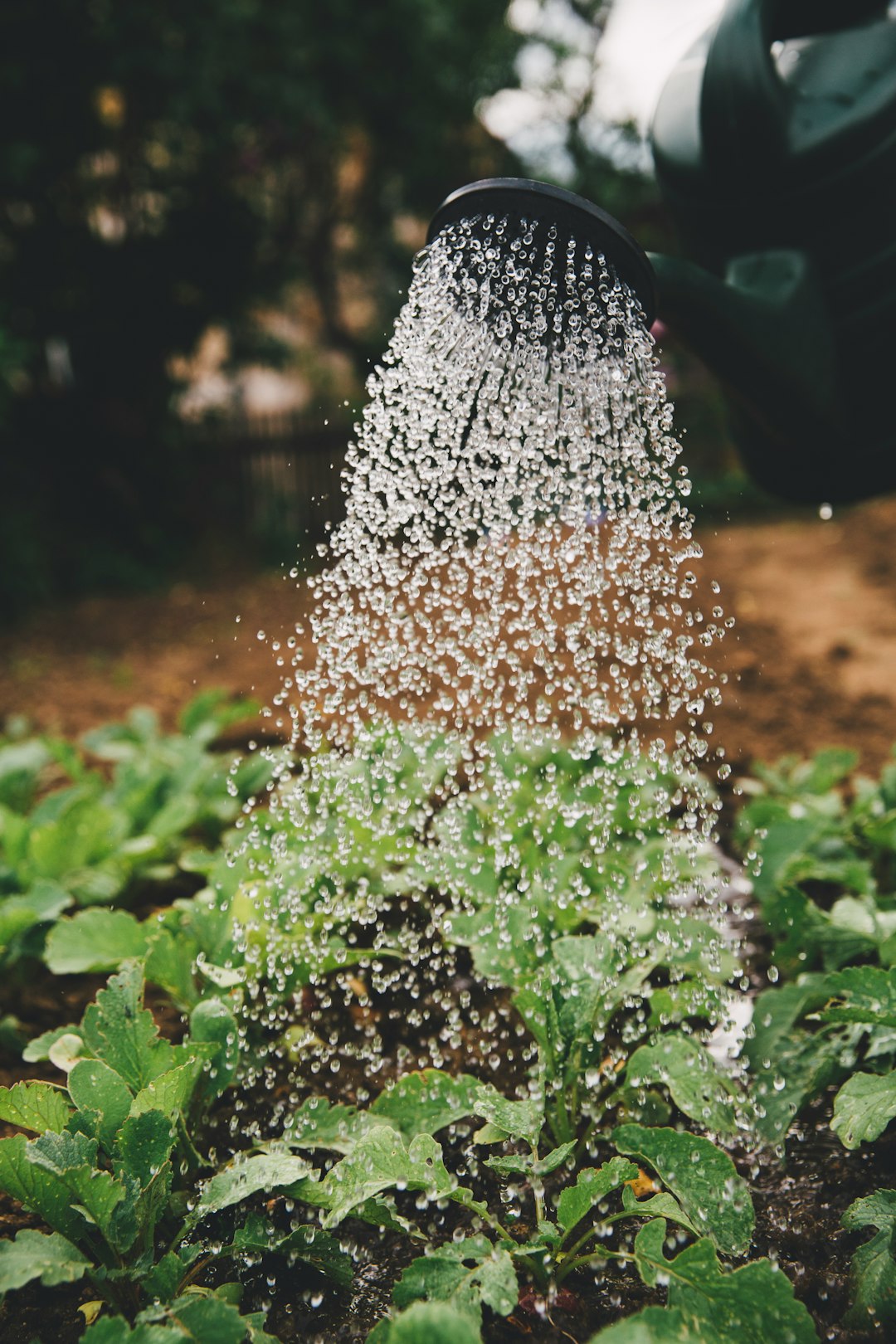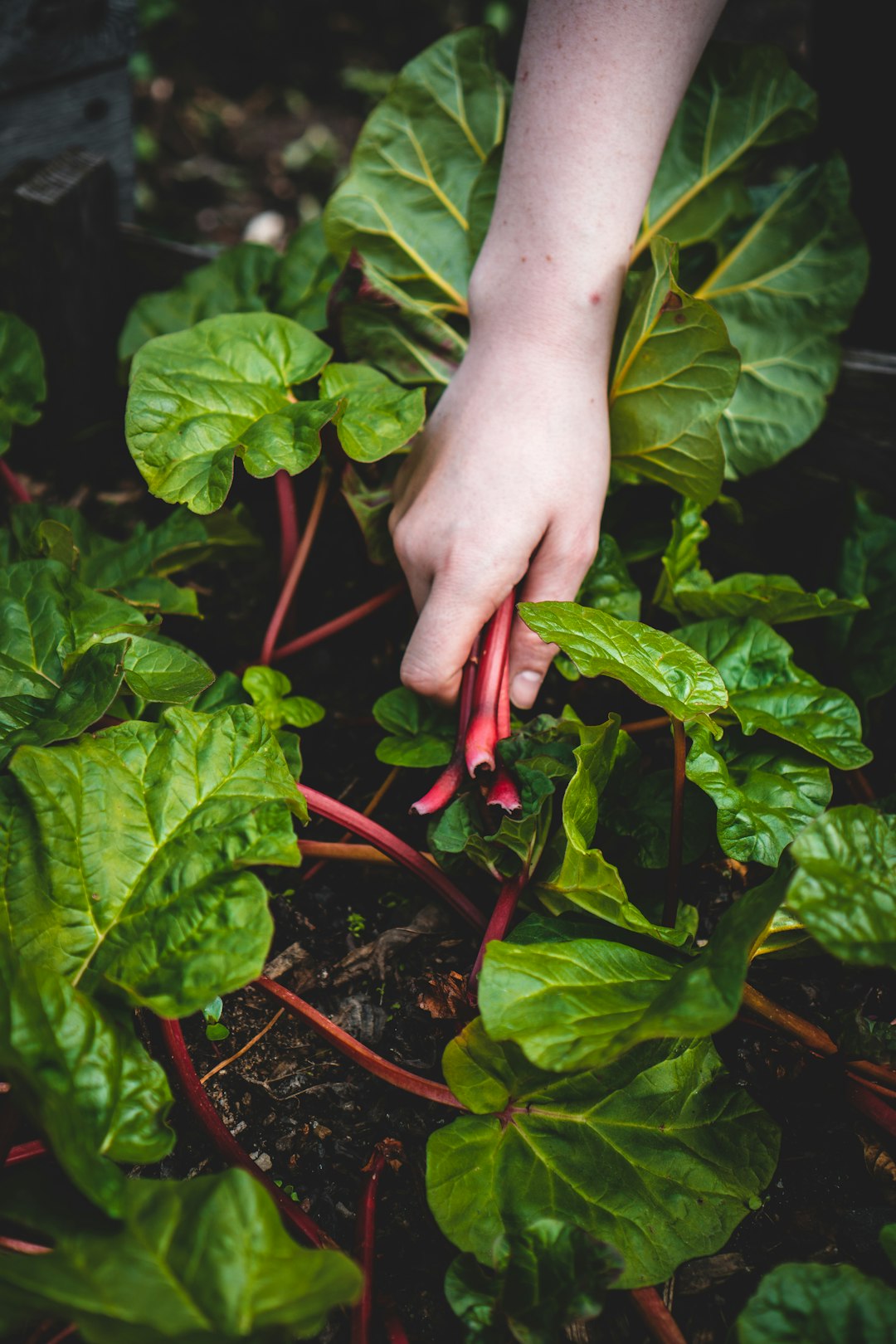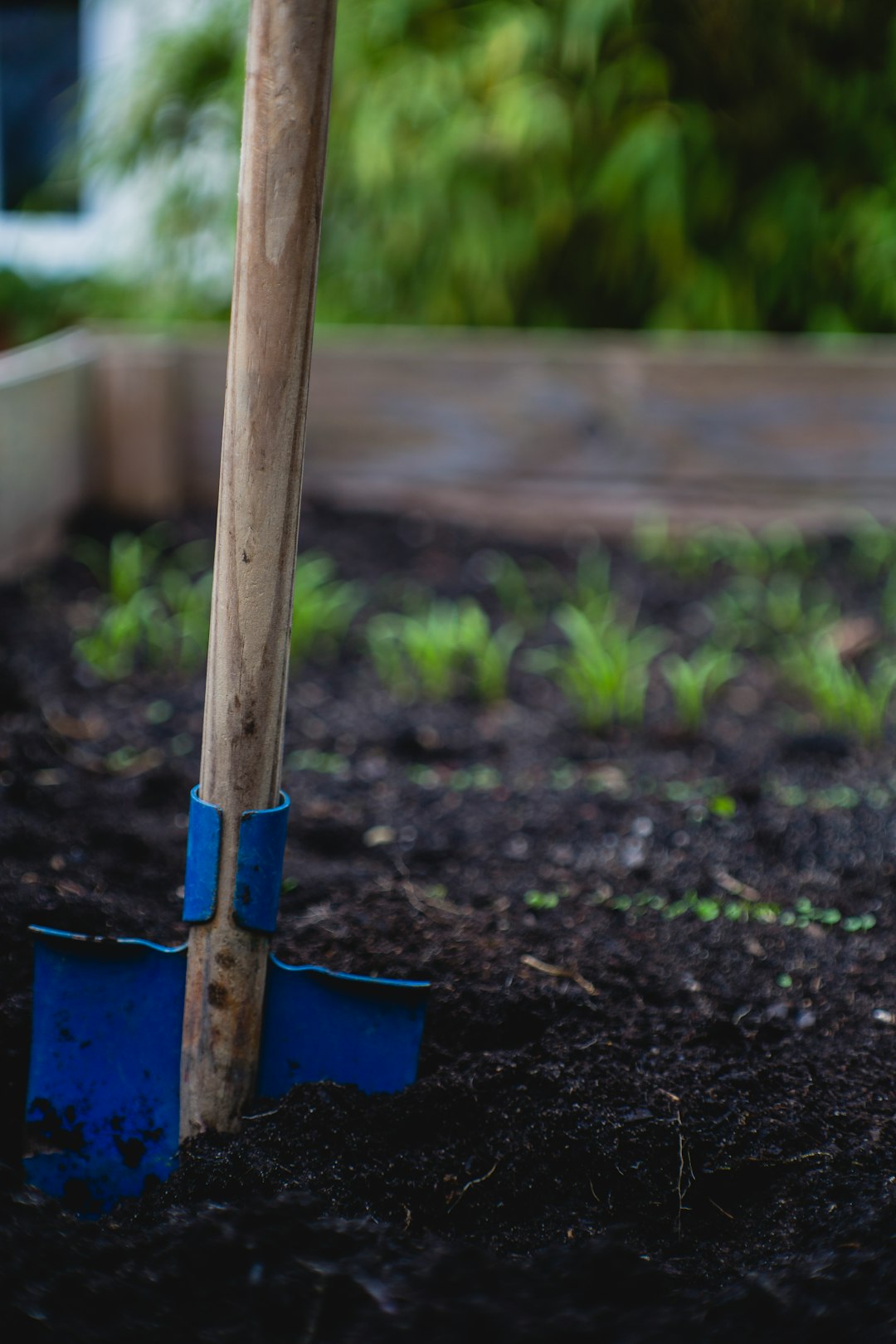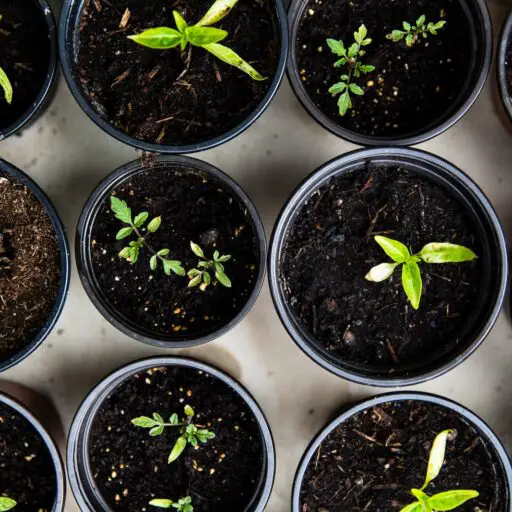Support our educational content for free when you purchase through links on our site. Learn more

Have you ever wondered how a patch of soil can transform not just plants, but lives? Community gardens are blossoming across urban landscapes, and they’re doing much more than just growing vegetables. Research shows that these green havens offer profound mental health benefits that can uplift spirits, foster connections, and even reduce anxiety. In this article, we’ll explore five key mental benefits of community gardens that might just inspire you to dig in and join one!
Did you know that individuals involved in community gardening report higher levels of happiness and lower levels of stress? 🌼 Imagine spending your weekends nurturing plants while building friendships and enhancing your well-being—all in your local community garden! Let’s dive into the transformative power of these green spaces and discover how they can enrich your mental health.
Key Takeaways
- Stress Reduction: Gardening lowers cortisol levels, helping to alleviate stress and anxiety.
- Enhanced Mood: Engaging with nature and physical activity boosts happiness and emotional well-being.
- Social Connections: Community gardens foster friendships and a sense of belonging, combating loneliness.
- Sense of Purpose: Nurturing plants provides a fulfilling sense of accomplishment and purpose.
- Cognitive Benefits: Gardening encourages learning and problem-solving, enhancing cognitive function.
Ready to start your gardening journey? 👉 Shop Gardening Tools on:
Table of Contents
- Quick Tips and Facts
- The Healing Power of Nature: Understanding Community Gardens
- Mental Health Benefits of Community Gardening
- How Community Gardens Foster Community Spirit
- Gardening as a Form of Therapy: Horticultural Therapy Explained
- Creating Your Own Community Garden: Steps to Get Started
- Success Stories: Transformative Experiences in Community Gardens
- Challenges and Solutions in Community Gardening
- Conclusion
- Recommended Links
- FAQ
- Reference Links
Quick Tips and Facts
- Community gardening is a powerful tool for improving mental health and well-being. 🌱
- Engaging with nature can significantly reduce stress and anxiety levels.
- Studies show that community gardeners report higher levels of subjective well-being compared to non-gardeners.
- Gardening fosters social connections, enhancing feelings of belonging and community spirit.
- Regular gardening can lead to cognitive benefits, including improved focus and memory. 🧠
- Horticultural therapy is increasingly recognized as an effective therapeutic practice for mental health.
The Healing Power of Nature: Understanding Community Gardens
Community gardens are more than just patches of green in urban settings; they are vibrant spaces where individuals come together to cultivate not only plants but also relationships and well-being. 🌼 These gardens serve as a sanctuary for people seeking a connection to nature, a sense of community, and a break from the hustle and bustle of daily life.
What Makes Community Gardens Special?
- Accessibility: Community gardens are often located in urban areas, making them easily accessible to residents.
- Diversity: They bring together people from different backgrounds, fostering inclusivity and understanding.
- Education: Many community gardens offer workshops and classes, empowering individuals with gardening skills and knowledge.
Mental Health Benefits of Community Gardening
1. Stress Reduction and Relaxation
Gardening has been shown to be a natural stress reliever. Engaging with soil, plants, and flowers can lower cortisol levels, leading to a more relaxed state of mind. 🌿
- Connection to Nature: Spending time outdoors and connecting with nature can enhance feelings of peace and tranquility.
- Mindfulness: The act of gardening encourages mindfulness, allowing individuals to focus on the present moment.
2. Enhanced Mood and Emotional Well-being
Community gardening can significantly improve mood and emotional health. Studies indicate that individuals involved in gardening report higher levels of happiness and satisfaction. 😊
- Endorphin Release: Physical activity involved in gardening releases endorphins, which are natural mood lifters.
- Sense of Accomplishment: Watching plants grow and thrive provides a sense of achievement, boosting self-esteem.
3. Improved Social Connections
One of the most profound benefits of community gardening is the opportunity to build social connections. 🌍
- Community Bonds: Gardening together fosters friendships and a sense of belonging, reducing feelings of isolation.
- Support Networks: Community gardens often create support systems, where individuals can share resources and advice.
4. Sense of Accomplishment and Purpose
Gardening instills a sense of purpose and accomplishment. 🌻
- Goal Setting: The act of planting seeds and nurturing them to fruition provides tangible goals to work towards.
- Impact on Others: Contributing to a community garden can enhance feelings of purpose, as participants see the positive impact of their efforts.
5. Cognitive Benefits and Learning Opportunities
Gardening is not just good for the soul; it’s also beneficial for the brain! 🧠
- Learning New Skills: Community gardens often offer workshops that teach new gardening techniques, enhancing cognitive function.
- Problem-Solving: Gardening challenges individuals to think critically and solve problems, which can improve overall cognitive abilities.
How Community Gardens Foster Community Spirit
Community gardens serve as social hubs, bringing people together to share experiences and knowledge. They create a sense of belonging and community pride.
- Cultural Exchange: These gardens often reflect the diverse cultures of the community, allowing for cultural exchange and understanding.
- Events and Activities: Many community gardens host events, such as potlucks and harvest festivals, which further strengthen community ties.
Gardening as a Form of Therapy: Horticultural Therapy Explained
Horticultural therapy is a therapeutic practice that uses gardening to improve mental and physical health. 🌼
- Therapeutic Benefits: Engaging with plants can help reduce symptoms of anxiety, depression, and stress.
- Structured Programs: Many community gardens offer structured horticultural therapy programs, providing guidance and support for participants.
Creating Your Own Community Garden: Steps to Get Started
Starting a community garden can be a rewarding endeavor! Here’s how you can get started:
- Gather Interest: Connect with neighbors and gauge interest in forming a community garden.
- Find a Suitable Location: Look for available land that is accessible and has good sunlight.
- Form a Committee: Establish a group of dedicated individuals to help organize and manage the garden.
- Plan the Garden Layout: Decide on what to plant and how to organize the space effectively.
- Secure Funding: Look for grants or community support to fund the garden’s initial setup.
- Start Planting: Organize a planting day and invite the community to participate! 🌱
Success Stories: Transformative Experiences in Community Gardens
Community gardens have changed lives! Here are a few inspiring stories:
- Charlotte Griffin, a garden leader, shares, “Gardening keeps my peace of mind together.” Her story highlights how community gardening has helped her manage stress and build friendships.
- John Anduri, a cancer survivor, discovered the healing power of gardening post-diagnosis, stating, “Exercise and what you eat really matters.” His journey emphasizes the importance of gardening for health and well-being.
Challenges and Solutions in Community Gardening
While community gardening has numerous benefits, it also comes with challenges. Here are some common issues and potential solutions:
| Challenge | Solution |
|---|---|
| Limited Funding | Seek grants and local sponsorships. |
| Lack of Participation | Host community events to raise awareness. |
| Maintenance Issues | Create a schedule for regular upkeep. |
| Conflicts Among Members | Establish clear communication and guidelines. |
Community gardening is a collaborative effort, and addressing these challenges can lead to a thriving garden that benefits everyone involved.
Conclusion

Community gardens are a treasure trove of mental health benefits, from reducing stress to fostering social connections. Whether you’re looking to cultivate your green thumb or simply want to enjoy the therapeutic effects of nature, joining or starting a community garden can be a life-changing experience. 🌿
For more insights on the benefits of community gardening, check out our article on Unlocking 10 Incredible Community Garden Benefits.
Recommended Links
- Benefits of Community Gardens
- Community Garden Events
- Community Garden Policies
- Garden Design Ideas
- Garden Maintenance Tips
FAQ

-
What are community gardens?
Community gardens are shared spaces where individuals come together to grow plants, vegetables, and flowers, fostering community spirit and collaboration. -
How can I get involved in a community garden?
Look for local community gardens in your area and reach out to see how you can participate or volunteer. -
What are the mental health benefits of gardening?
Gardening can reduce stress, improve mood, enhance social connections, and provide a sense of accomplishment and purpose.
Reference Links
- PMC Study on Community Gardening and Mental Health
- Penn State Extension on Mental Health Benefits of Gardening
- CPR on Gardening Health Benefits
Conclusion

In summary, community gardens are not just about growing plants; they are about cultivating connections, enhancing mental well-being, and fostering a sense of belonging. The benefits are profound, from reducing stress and anxiety to improving mood and social interactions. 🌱 Whether you’re a seasoned gardener or a curious beginner, engaging in community gardening can transform your mental health and enrich your life.
Positives:
- Stress Reduction: Engaging with nature and gardening activities significantly lowers stress levels.
- Social Connections: Community gardens foster friendships and a sense of belonging.
- Sense of Accomplishment: Watching your plants thrive boosts self-esteem and provides a sense of purpose.
Negatives:
- Initial Setup Challenges: Starting a community garden can require time and effort to organize.
- Maintenance Needs: Regular upkeep is essential to keep the garden thriving, which may be challenging for some.
Overall, we confidently recommend getting involved in a community garden. The mental health benefits are well-documented, and the sense of community you’ll gain is invaluable. So, grab your gardening gloves and dig into a rewarding experience! 🌼
Recommended Links
-
👉 Shop Gardening Tools on:
-
Books on Gardening:
FAQ

How does community gardening improve mental well-being?
Community gardening enhances mental well-being by providing a space for individuals to connect with nature, engage in physical activity, and foster social relationships. Studies have shown that spending time in green spaces can reduce symptoms of anxiety and depression, leading to improved overall mental health. The act of nurturing plants also instills a sense of purpose and achievement, which can further elevate mood.
Read more about “Discover the 10 Essential Steps to Planting a Garden Like a Pro! 🌱 …”
Can community gardens reduce stress and anxiety?
Absolutely! Engaging in gardening activities has been linked to lower cortisol levels, which is the hormone associated with stress. The physical activity involved in gardening, combined with the calming effects of nature, creates a therapeutic environment that helps alleviate anxiety. Many gardeners report feeling more relaxed and centered after spending time in their gardens. 🌿
What are the social and psychological benefits of participating in a community garden?
Participating in a community garden offers numerous social and psychological benefits, including:
- Building Friendships: Community gardens serve as social hubs where individuals can meet and connect with others.
- Fostering Inclusivity: They promote inclusivity and understanding among diverse groups of people.
- Enhancing Self-Esteem: Contributing to a shared project boosts self-worth and confidence, especially when seeing the fruits of one’s labor.
Read more about “What is the Power of Community Gardens? 20 Transformative Benefits 🌱 …”
Does community gardening help with depression or loneliness?
Yes, community gardening can significantly help with feelings of depression and loneliness. By providing a supportive community and a sense of belonging, individuals can combat feelings of isolation. The act of gardening itself can also be a form of therapy, allowing individuals to focus on nurturing plants rather than their worries. 🌼
Read more about “Discover 15 Surprising Mental Health Benefits of Community Gardens 🌱 …”
Are there therapeutic benefits to working in a community garden?
Definitely! Horticultural therapy is a recognized practice that uses gardening to promote mental health. Working in a community garden can provide therapeutic benefits such as:
- Mindfulness: Engaging with plants encourages mindfulness and presence.
- Physical Activity: Gardening is a form of exercise that releases endorphins, improving mood.
- Creative Expression: Designing and caring for a garden allows for personal expression and creativity, which can be therapeutic.
Read more about “Transform Your Neighborhood with 10 Inspiring Community Gardening Ideas 🌱 …”

